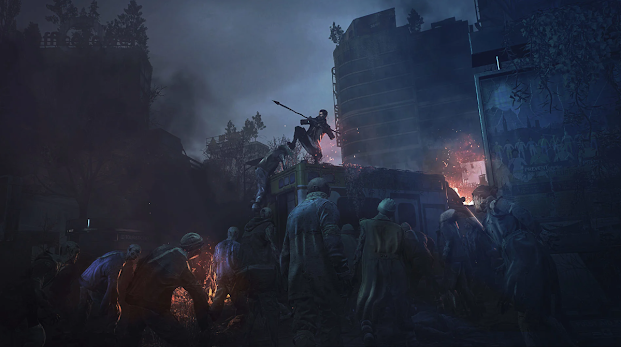When Polish game developer Techland announced the cancellation of two projects still in development, the gaming world was understandably surprised. However, rather than taking the usual route of layoffs or restructuring, Techland handled the situation calmly and prudently: all developers originally assigned to the canceled projects were reassigned to other ongoing ones, and the company emphasized that no layoffs would occur as a result.
Techland is best known for its beloved “Dying Light” series. The studio has always taken a relatively low-profile approach—rarely in the spotlight, yet consistently maintaining a solid reputation for quality and an acute sensitivity to player needs. On the surface, canceling two unannounced titles might seem like a small move, but beneath it lies significant financial pressure.
According to Polish financial outlet Puls Biznesu, Techland recorded a loss of 135 million PLN (approximately USD 37.4 million) in 2024. For a mid-sized developer, that’s no small amount. Although Techland did not disclose the specific causes of the loss, Eurogamer reported that one of the canceled games was likely the open-world fantasy RPG first revealed in May 2022.
That mysterious RPG had excited many fans, given its impressive development lineup—which included veteran developers from CD Projekt Red (“The Witcher” series), Arkane Studios (“Dishonored”), and Guerrilla Games (“Horizon” series). On paper, it seemed like a project destined for success, yet the reality of game development is often far more complicated.
In truth, Techland’s decision is understandable. Independent developer Alex Harper, based in London, mentioned in an interview that his team had cut three ambitious prototype projects in the two years following the pandemic. “You always want the next game to be bigger and better,” Harper said, “but when you’re burning cash without a clear direction, stopping might actually be the most responsible choice for the team.”
Techland’s statement reflected this pragmatic mindset:
“All team members have already transitioned to other projects. We are currently focusing on the development of Dying Light: The Beast, which is planned for release on PC, PlayStation 5, and Xbox Series X|S.”
Interestingly, Dying Light: The Beast was originally conceived as a DLC for Dying Light 2, but after significant plot details were leaked, Techland decided to turn it into a standalone title. While that decision initially puzzled fans, it now appears to be a strategic pivot—allowing the studio to reuse existing assets while giving the product a clearer market identity.
Techland has not disclosed details about any other ongoing projects but stated that future announcements will come after The Beast’s release. This cautious strategy likely reflects the broader uncertainty currently gripping the gaming industry.
In recent months, layoffs have swept across the sector, with many small studios shuttering entirely. From Telltale Games in the U.S. to Romero Games in Ireland, familiar names have quietly exited the stage. Unpredictable market trends, rising development costs, and the rapid evolution of AI technologies and player preferences have all forced game companies to reassess their product strategies.
Against this backdrop, Techland’s “downsizing without layoffs” approach feels almost admirable. As veteran game designer Michelle Dubois, based in Paris, once put it:
“Making games is like raising children—not every child grows up successfully. Sometimes, you must learn to say goodbye gently but firmly.”
We may never know what those two canceled games looked like, but if this decision leads to a more stable future and more complete releases, then for Techland, it may well be a wise and mature move. After all, in this fast-changing industry where opportunity and risk coexist, the courage to stop can sometimes be more valuable than the impulse to keep sprinting forward.








Leave a Reply